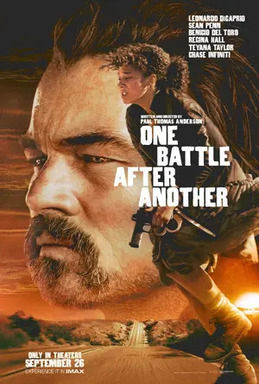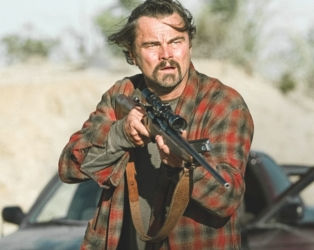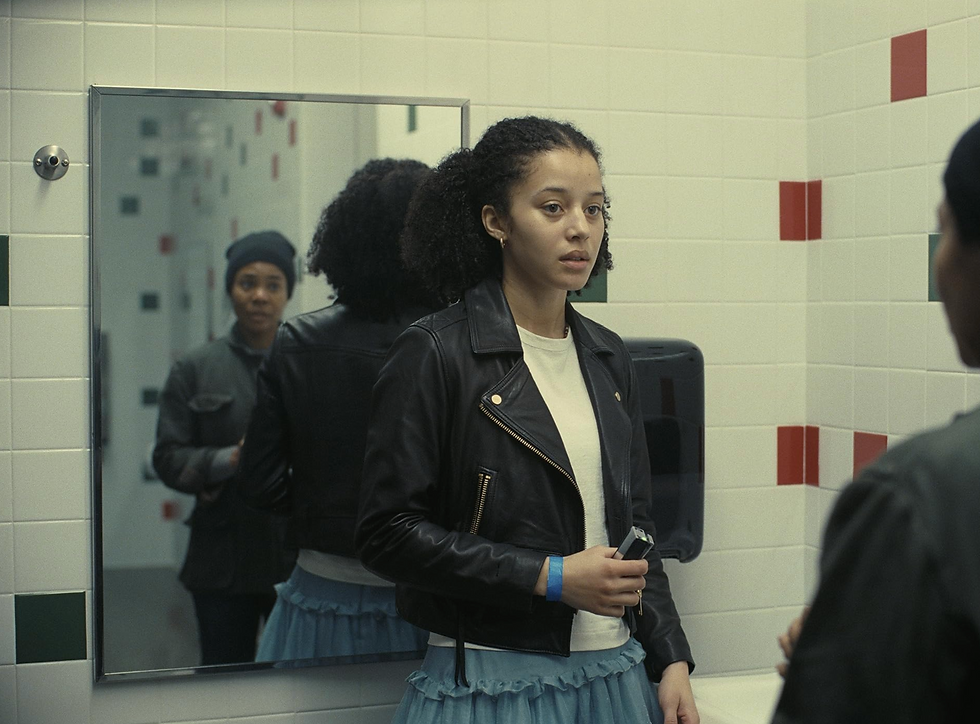One Battle After Another is another fine piece of cinema for these tumultuous times.
- Denise Breen

- Oct 3, 2025
- 4 min read
5 out of 5

I remember looking forward to watching Licorice Pizza as early reviewers had been raving about it, only to find it contrived and unengaging. This time, my vote is a definite yes! Paul Thomas Anderson is an excellent filmmaker: ideologically ambitious, deeply humanistic, and boldly confident in his technical skills (more on those technical skills later). Anderson presents this new contemporary, highly political film with depth and flair.
I'll be honest, I've never been a huge fan of Leonardo DiCaprio. I think he sometimes gives us a discount-store version of Jack Nicholson but in this film, he probably gives his most inspired performance in years as a guy swept up with a 1990s political underground movement.
In One Battle After Another Anderson throws us directly into a whirlwind of a milieu without much setup, and part of the thrill of the first act of the film is that you’re not spoon-fed information: the action is fast-moving, the relationships are confusing and surprising, and your orientation is a bit off.

Teyana Taylor, who plays the main revolutionary Perfidia Beverly Hills, helps shoot this film off like a cannonball: she feels like a completely original character, taking what could be a cliché and fleshing it out in small moments of complexity. I'm not accustomed to seeing female characters this selfish and intense presented without compromise, and there’s something fiercely unapologetic about Taylor’s acting that feels very thrilling and launches the pacing and energy of the film from the start. She is a delight to watch.
The film is a timeless story of rebellion and I believe the writing is simply phenomenal. Anderson, losely adapting Thomas Pynchon's Vineland's novel doesn't just adapt it; he absorbs its essence—its paranoia, its absurdist humour, its deep-seated anti-authoritarian spirit—and crafts a screenplay that will surely deserve an award. The script is a a bit of a tightrope walk. It blends screwball comedy, ferocious political polemic, high-octane action, and tender family drama. In lesser hands, this constant zig-zag would crumble, but here it produces a truly original rhythm—a constant, buzzing tension that is hilarious one moment and heartbreaking the next.
Crucially, the script is character-driven. Every outlandish plot point and political broadside is filtered through the specific frustrations and loves of the characters. By anchoring the epic sweep of revolution and counter-revolution in the messy, messy love between a father and daughter, Anderson achieves a genuine sense of humanism that transcends mere political diatribe.
Anderson's directing is a breathtaking display skill. He orchestrates complex set pieces, including an instant-classic, gravity-defying car chase, with a masterful blend of assured choreography and gonzo delirium. Yet, he never sacrifices character for spectacle. The film is a massive canvas, yet every frame feels deliberate, every performance perfectly pitched, guiding us through a world that is both utterly absurd and terrifyingly recognizable. He maintains an unflagging, jittery energy for 170 minutes, edited by Andy Jurgensen to race forward with barely a pause. Anderson successfully delivers a big, crowd-pleaser of the kind he's never truly made before, complete with explosions and star power, while never compromising his singular, idiosyncratic vision.

Leonardo DiCaprio delivers a performance of frayed, desperate humanity as the stoner ex-revolutionary "Bob" (formerly "Ghetto Pat Calhoun"), balancing comedy with crippling paranoia and the fierce protective instincts of a father. Sean Penn is utterly terrifying as Colonel Steven Lockjaw, creating a monolith of American fascist menace that is one of the most memorable villains in recent memory; he plays both the specific human and the monolith in the same moment. He surely has to feature in the upcoming Awards season. Newcomer Chase Infiniti is a revelation as the self-reliant daughter, Willa, grounding the chaos with her sharp presence and embodying the stubbornness of the next generation. The supporting cast, particularly Benicio del Toro's heroically "chill" Sensei Sergio and the previously mentioned Teyana Taylor as the electrifying Perfidia, all shine, delivering compelling turns that are completely in sync with Anderson's audacious ideas.

I mentioned technical skills and I have to acknowledge the camera work by cinematographer Michael Bauman. Shot entirely in the rarely-used VistaVision format, the film is a visual feast, giving the images a rich, textured quality that makes both the wide-open Californian landscapes and the cramped underground bunkers feel intensely alive. Bauman and Anderson employ a kind of unflashy movement that amplifies tension, notably in that incredible car chase filmed in a bonkers, dizzying way over undulating highways. The shots of cars dipping in and out of view create a genuine, Hitchcock-like suspense. This is a movie that was truly shot to be seen on the big screen.







Comments